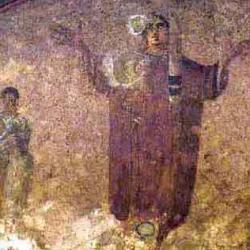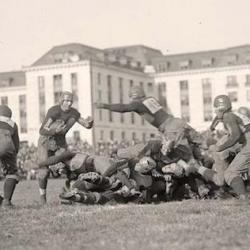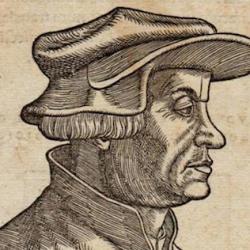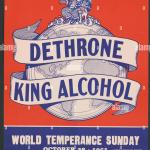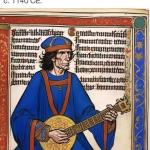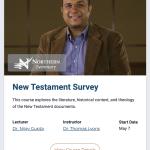Bernd Wannenwetsch (Political Worship, 63–65) denies that in Luther’s theology politics and economics “count as being a preserve of the law.” The usus politicus of the law doesn’t mark “a particular preserve not touched by the gospel.” He needs to emphasize this because “an unduly abridged reference to Luther’s doctrine of the two kingdoms” can give the opposite impression. Such versions of two-kingdom theology rest on “distinctions, and particularly the distinction between law and gospel.”
Wannenwetsch argues that Luther’s teaching on three created estates of church, politics, and economics aims to bring out “the connection between the different forms of life, a connection which in the doctrine of the two kingdoms threatens to disappear in the distinction between the two.” A statement from one of Luther’s later works makes this clear: “faith and the state of being a Christian is so free a thing that it is bound to no estate, but is above all estates, in all estates, and through all estates.”
Luther reflects the “Reformation fusion of the previously accepted fundamental difference between the spiritual and worldly estates (politics and economic life) in the single ‘estate’ of Christian life now,” which “occasions a new perception of the way the estates belong together. For they now no longer denote mutually exclusive forms of life., They are the different fields in which faith and love must prove themselves. Now everyone belongs to every worldly estate because everyone belongs to the spiritual one. No one can escape the politia, no one may despise the oeconomia. The Christian citizen is a citizen of the Church, a citizen of his household and a citizen of his city all in one; and this being so, every Christian inescapably lives politically. There can be no private existence for Christians.”
Luther argues that this expresses the view of Scripture, “since it show that there is nothing holy which does not find a place in politics or economics” (the Latin is quod nullus sanctus unquam extiterit, qui non versatus fuerit vel in Politia, vel Oeconomia). Luther’s teaching on the estates thus “introduces a strong counter-emphasis to the doctrine of the two kingdoms.”
All this is part of Wannenwetsch’s exploration of Luther’s liturgical theology, his endorsement of a form of “political worship,” a term that Wannenwetsch uses to undermine any strong two-kingdom theory. According to his reading, Luther offers both an ethics of divine command and an ethics of worship, but he brings them together inseparably: “His commandment ethics is an ethics anchored in worship, not a pure commandment ethics.” Luther’s initial assault on the Catholic church marginalized liturgy in the narrow sense and emphasized that all of life is worship; as he found he had to engage the “left” wing of the Reformation, he renewed his emphasis on “the importance of worship in its external form.” In his later work, he synthesized the two themes: “It is doubtless true that the foremost and highest worship is to preach and listen to God’s Word, to administer and receive the sacraments, and so forth, these being the works of the First Commandment among the ten. But yet the works of the other commandments do also all of them serve God: namely to honour father and mother, to live patiently, chastely and virtuously. For whoever lives thus serves and worships God thereby” (quoted 61). Following the general Christian tradition, Luther placed ethics within a “liturgical, life-forming context” (61).
The ethics that springs from worship is, Wannenwetsch says, a political ethics “in so far as it does not treat individual themes along the lines of applied ethics, but sees the task of ethics as a whole as a political one.” He fills out this point pneumatologically, citing Scripture rather than Luther. Worship has a “public and political character” since it occurs in the Spirit: “The biblical tradition makes it clear that God’s Spirit does not act merely in the private sphere; it is directed in every case towards public life, towards its formation and regeneration. Its ecstatic effect must not by understood solely in its psychological repercussions on the individual; it is always at the same time a political phenomenon.” When people are gripped by the Spirit in Scripture, they are “beside themselves.” and so “forced to become public figures—not infrequently against their will—and built up a specific public around themselves.” In the Spirit, judges as prophets no longer belong to themselves “but are claimed by the Spirit for a public task” (65-66).
As the Spirit inhabits worshipers in worship, and drives them into their activities within the estates, the gospel infuses political and economic life. Luther aside, a biblical pneumatology militates against a strong two-kingdoms distinction as much as a doctrine of three estates.






